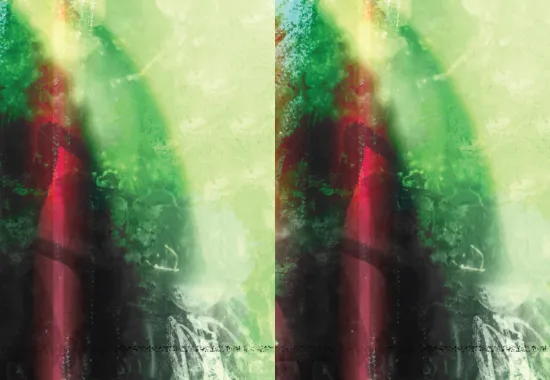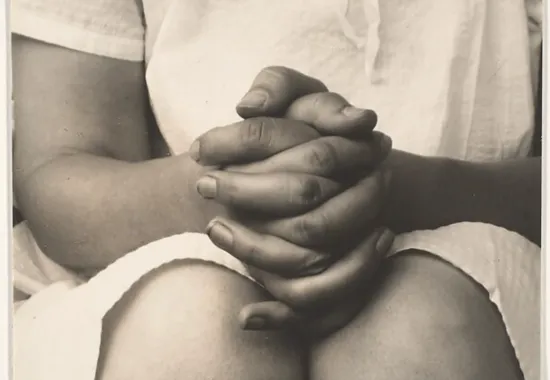Review: Find Me When You’re Ready by Perry Janes
Any writer of confessional poetry concerning a traumatic childhood event must confront a particular craft-problem: How much can a writer withhold while still carving the poetic outline around a trauma in such a way that it becomes art? Several poems in Perry Janes’ Find Me When You’re Ready manage precisely this question with humanity and grace. Still other poems in the book are about this question. Janes has said of this collection: “It was important to me to write a book that didn’t concede childhood’s vast swath of experience to a single instance of harm.” Janes has also said that part of the difficulty of writing “this particular story” is that it unpacks an act of "‘peer abuse’ wherein the abuser is another child." These aims and difficulties frame the scope of the book’s early sections, especially.

The speaker(s) of Perry’s poems are keenly aware of participating in the mutability of memory. They are aware of how their own use of language to turn memory into story or myth is always—almost by definition of the way language works—a way of revising what happened. See especially: “Another Diorama, Revised,” a poem near the end of the collection which revises and inverts “Another Diorama, Tired as it Feels,” from near the book’s beginning. Or look to the moment in “Ode to Griffith Park…” where the lines unlatch from their left-hand margin only at the moment the speaker seems about to encounter his childhood abuser, now also an adult. After the moment of meeting on the path, the speaker tells us “I lied / about certain details: the man’s / appearance, his dogs, the whole / sorry episode.”
Language can also work to fix extant memories in place, but that is what the speaker of another poem resists precisely by branching into images and linguistic echoes rather than fixed story (“Police Interview as Two Knights of the Kingdom and a Rogue Answering their Questions”). Later, in the poem that makes up the entirety of Act Three, Janes’ speaker addresses a reader directly to ask:
Is this too plain—
Am I saying it clearly—
What’s too much, too many—
I’m afraid of the saturation point, my story
like a rag you can’t use to clean any damn thing.
“This Music,” a poem in the book’s first act, ends with a scene of the high-school-aged-speaker reading aloud for his parents something he wrote in school about a “period of suffering or struggle,” “believing” that he had made it into “music.” Here is the present-day speaker acknowledging his recognition that art doesn’t necessarily transform the things it records or documents. Suffering put into words isn’t automatically “music.” But so much of Janes’ poetry is musical…these poems are full of sonic pleasures (listen for the soft rhymes and assonance). Janes is interested in this problem of art-making; where the ethical overlaps with the aesthetic, we should ask: What does it mean to render something terrible into beautiful language?
Is that absorption a way of neutralizing an external threat? Or does it suggest that the speaker himself is a threat because he contains one?
Janes is also a screenwriter, and the poems in Find Me When You’re Ready are often cinematic, moving in and out of scene deftly and elegantly. In “Creation Myth,” the camera of the poem’s focus looks away from the scene of abuse to interrupt what was beginning to feel like a narrative poem, until it looks back again, in confusion, at the poem’s end, destabilizing the picture. Also notable are the “Parable” poems, which call childhood stories into service displaying the sinister sides of all such stories (a mermaid, a golem)…and how they live in the people who internalize them. Poet Vievee Francis calls this collection a bildungsroman, and it is, in the sense that we trace the speaker’s history from childhood into tender, malleable manhood. The poems move from the Detroit of Janes’ youth to the California of his adulthood; in this book there are complicated love poems for both places.
You might expect a book orbiting a childhood trauma to not be much fun, but you’d be wrong; Find Me When You’re Ready turns on wit as often as it turns on drama. With titles that capture the absurdity of contemporary life (“Google Knows Literally Everything About You—Here’s How to Delete That Data;” “Survival Guide for Great Indoorsmen”) this book offers us moments of voice-filled humor, too.
These poems are often cinematic, but Janes is also an excellent writer of memorable lines. A description of Halloween trick-or-treaters: “A parade of costumed children bravely / trying on their deaths.” Or this line from a poem early in the book concerning the fires in California: “Sometimes / hope is a question of redirecting the camera.” (I’ve been thinking about that line a lot these days, looking around for where to focus the camera of my mind onto the helpers.)
Two more memorable sentences come from “Survival Guide for Great Indoorsmen,” one of my favorite poems of the book: “To swim / in the ocean is to reenter the food chain,” and “I’m saying the bear you don’t see is more terrifying / than the bear you do.” “Survival Guide” unlatches from a narrative (about finding a literal bear track on a hike) into a series of associative leaps that lead us to the poem’s final image-metaphor, in which the speaker, like a performer, calls for us to look:
…Bird Nests. Bear paw. Look
how I call the imagined creature to my palm.
How it shivers with pleasure, the way animals
sometimes do, and walks beside me down
the wintery trail, leaving only our single
set of tracks.
What I admire here is the flexibility that poems are so good at; the threat, in the form of the bear, is imagined and therefore one with the speaker. Is that absorption a way of neutralizing an external threat? Or does it suggest that the speaker himself is a threat because he contains one? These simultaneous possibilities feel especially poignant after the book’s early poems orbiting the real childhood threat this speaker has emerged from.
This book’s final act arches toward the love that comes from partnership and friendship. The closing poem conjures a “Cookout” of friends through an incantation of their names, poignant in the poem’s pandemic context, but poignant also if we read quarantine as a metaphor for our American loneliness and isolation.
Some of the poems in the book’s last sections are deeply romantic, as sexy as you can expect a “Spare Rib with Shitake Slaw and Scallion Glaze” to be. “Spare Rib’s” title manages to invoke Eve's creation from Adam’s rib, a biblical myth I’ve never found particularly romantic (casting, as it does, the woman as a mere sidekick made from the main guy). And yet “Spare Rib” is one of the most tender love poems in this collection, invoking the ways we might draw out the pleasurable experience of eating, all while eating becomes a metaphor for savoring love in the middle of our short, human lives. “Be alone with me / to savor what arrives / and is gone,” I mean, whew.
Another love poem (“Ars Poetica as Love Poem with Auto-Correct; or, Mission You”) ends with an image recalling the imagined bear walking beside the speaker, only this time it’s the lover:
Our future blinks by,
surprising and mundane, and look
how far we’ve come, you and I,
needing only the word our feet make
as they walk side by side.
Here, the speaker’s lover isn’t subsumed, imaginary, into the single set of tracks like the bear, so the return of this image lands like another of this book’s revisions and revelations: the threat turns into a companion, a lover…or perhaps the threat has been replaced by a lover more corporeal and immediate that the imagined bear. We leave the book through these portraits of love, these celebrations of messy, wonderful life: “Here is the water / dirty with signs of their living.”
Recommended
A Review of When We Were Gun: A Narrative Poetry Cycle by Deborah Schupack
A Review of Apostasies by Holli Carrell






